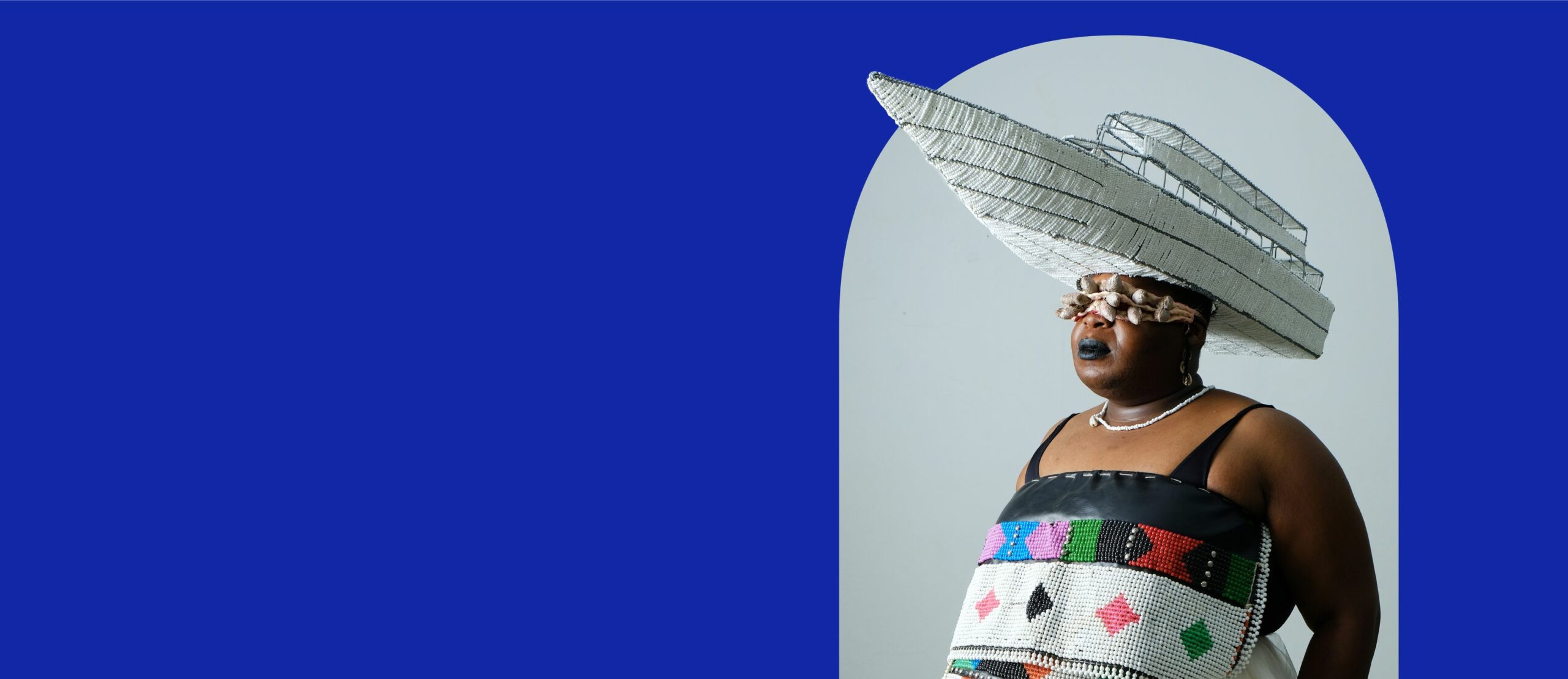PROGRAM
AGENDA
PROGRAM
DAY BY DAY
Every festival Afrovibes fives ample attention to design and fashion by contemporary African designers and designers in the program Design and Creative Arts. We invite African artists and designers who develop innovative forms and design elements in the field of design, fashion and design. The seventh edition of this program was in 2023. This is a short representation in words and images of the design and fashion program in Afrovibes 2023.
- Albert Silindokuhle Khoza (South Africa).
He did a photo shoot for his show The Black Circus of the Republic of Bantu. One of the images from this photo shoot was used as the campaign image. This image aptly translated the theme of this festival edition Liquid Traces. The transportation of black bodies across the waters of the oceans, the memories and traces of colonial journeys and the connecting power of water between cultures and continents. In these images, Albert Khoza shows the urgency of facing these memories and history and the effect of the colonial gaze on black bodies.

- Mode.
The festival featured two fashion presentations. Naomi Rosheuvel is founder of the fashion label Nomi, by Naomi. About her designs, she says, “I want to bring both boldness and sophistication to an urban, bold wardrobe to help individuals show their character and individuality through their unique clothing.” With craftsmanship, unique color palette and innovative styling skills, she brings timeless femininity and the “dare to stand out. Sandro Lima is a Rotterdam-based fashion designer, playwright and actor with Cape Verdian roots. With his clothing style, he explores the boundaries of masculine silhouettes. He brought his collection and performance Manhood Womanhood to Afrovibes 2023.
- Exhibition – Oceanic Marigold Beads
Can beaded necklaces represent the ocean? Can the solidity of beads evoke the fluidity and ephemeral brilliance of seawater? These questions were the source for the art project Oceanic Marigold Beads by the Marigold Beadwork Cooperative of Zimbabwe and visual artist Joni Brenner of South Africa. Oceanic Marigold Beads bring to life the vast colour palette of the ocean, the blues and greens, reds, purples and blacks of the deepest ocean, as well as the hues of sand, surf, seaweed and the open sea. In Africa, beads are important because of their history as means of payment in times of colonialism and slavery and because of their representative functions in African societies.The waters of the Atlantic and Indian Oceans experienced massive population movements, slavery and the exploitation of people and goods. In many African traditions, however, the oceans and waters of the sea are also material for healing, for fluidity, cleansing rituals and rebirth. The sensual sparkles of the Oceanic Marigold Beads put us in touch with the history of African beadwork, with the ocean, the history of slavery and violence and the ability of water to cleanse and heal. This art project came about in collaboration with the Oceanic Humanities for the Global South (OHGS) project at the University of the Witwatersrand Johannesburg, a research into the shared cultural world of the regions surrounding the Indian Ocean.
During Afrovibes, the exhibition was at Theatre Frascati in Amsterdam from 4 – 8 October and De Balie Amsterdam from 10 – 30 October. As part of the exhibition, two short films were made in which all these elements, dancers, the beadworks, the sea and the beach flow into each other like liquid traces.
Oceanic Marigold Beads – BLUE: https://youtu.be/kworEX4wcTs
Oceanic Marigold Beads – RED: https://youtu.be/6FM7Slpmnvc
- Video performance. LAGOM: Breaking Bread with The Self-Righteous, Lhola Amira (South Africa).
Lhola Amira does not perform, she just appears. She looks a little lost in a field of flowers in bloom, a vista of beauty, yellow everywhere. She does not pluck a single flower. Lhola Amira refers to Sweden’s forgotten colonial past, a country that has successfully cultivated a neutral image of itself. Its history with colonialism and slavery seems gone. But Sweden was the first country to colonize Ghana and practice slavery. The self-righteous have skeletons in their closets. “The axe soon forgets but the tree remembers, “says an African proverb. Lhola Amira walks the country, carrying in her red suitcase decolonial love, an urgent antidote to self-righteousness. At the end, she sits by the water and watches bodies cavorting in the water. “Poetic aesthetics cannot be, no matter how beautiful I make the film.” Lhola Amira. Due to copyright issues, the video cannot be shown online. The link to the gallery and Lhola Amir’s work can be seen at https://www.smacgallery.com/exhibitions-breaking-bread-with-the-self-righteous
